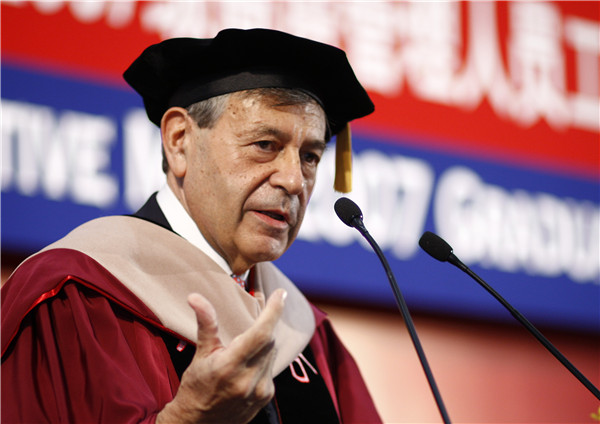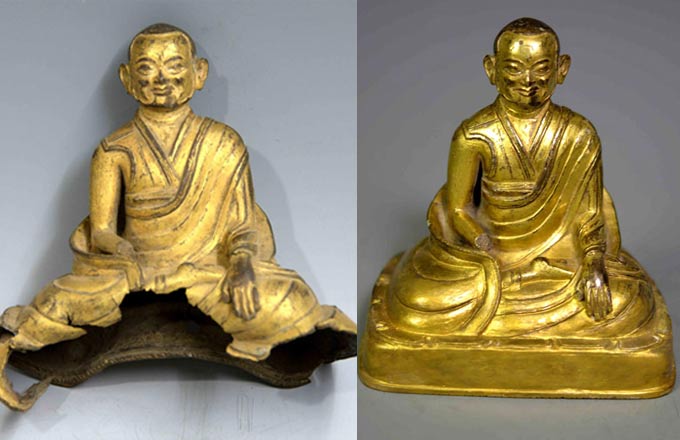Building bridges
 |
|
Pedro Nueno, president of China Europe International Business School, speaks at a graduation ceremony in Shanghai. [Photo provided to China Daily] |
An international business school, set up in the 1990s, is among China's largest such institutions. Its founder Pedro Nueno is still at the helm. Liu Xiangrui reports.
Pedro Nueno, a Spanish business management expert, has compared his launching of business schools around the world to "building bridges of peace" at a time of growing global commercial exchanges.
During his first visit to Beijing in the early 1980s, he was impressed by the booming economy of China, which had started its reform and opening-up by then.
Nueno, sensing the need and confident of the country's potential, immediately planned to start a business school here.
Nearly three decades later, his vision is reflected in the China Europe International Business School, one of China's largest business education institutions, and Nueno, now in his early 70s, still serves as its president and a professor of entrepreneurship.
Nueno has taught at different institutes around the world, such as Harvard University, and has been a frequent speaker at international conferences.
He has been a consultant for many international institutions and corporations, including the World Bank, and has been a member of the advisory board of many business schools, including IESE in Spain.
According to Nueno, his interest in business schools was sparked by one of the professors at Harvard, where he received his doctorate in business administration.
The professor helped establish several business schools around the world after World War II and saw this as a means of building bridges between countries, and Nueno wanted to do the same.
So, the first thing he did after finishing his studies was to help launch a business school called IAE in Argentina, a well-known place for related studies in the country.
He then helped launch business schools in Colombia, Mexico and Portugal.
In the early '80s, he came to realize "now it's the moment of China", as he believed the fledging market economy would generate demand for business management knowledge.
So, he first launched a two-year MBA program-with around 50 students-in Beijing in 1984, in cooperation with some European business schools as the precursor to a full-fledged campus in Shanghai later.






















